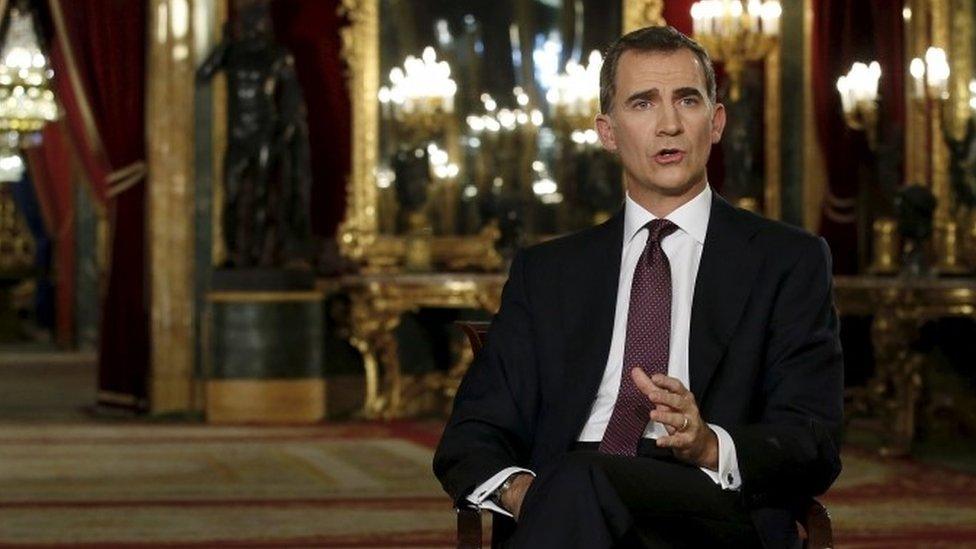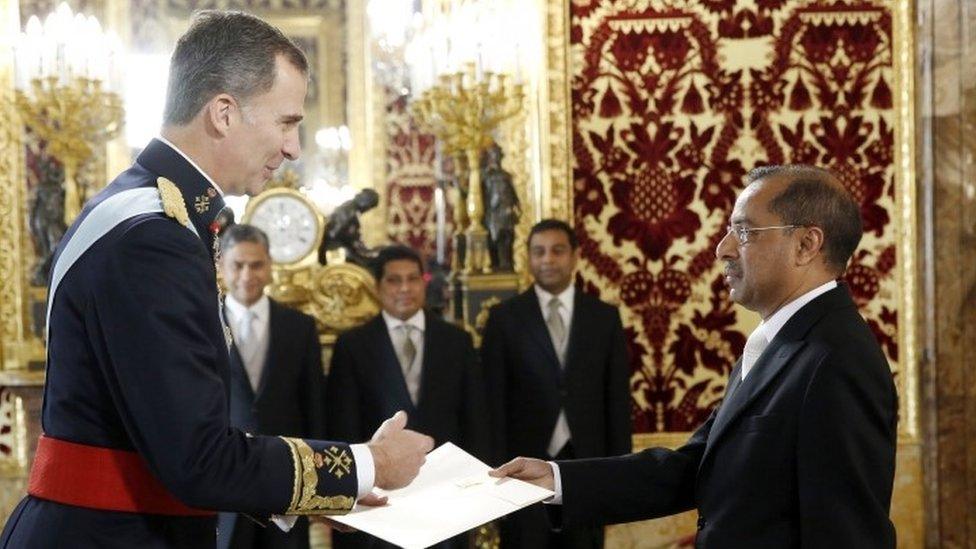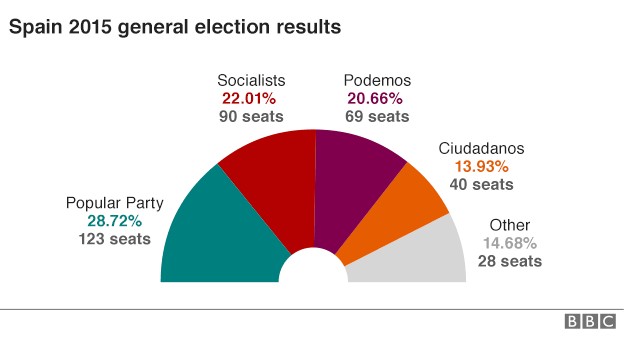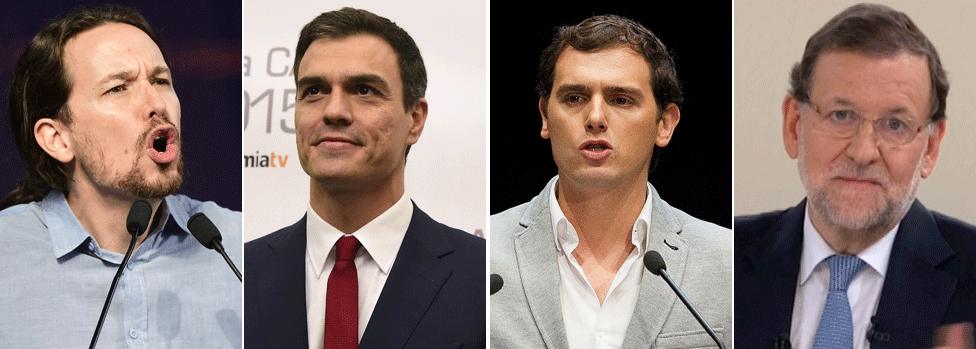Spain elections: King Felipe calls for national unity
- Published

King Felipe's intervention comes amid uncertainty following the election
King Felipe VI of Spain has appealed for unity and dialogue in his Christmas Eve message after elections at the weekend produced no conclusive result.
He called for "understanding and a fraternal spirit" to end uncertainty.
The king also called for "national cohesion" in what correspondents say could be criticism of separatists in Catalonia.
The king has a high opinion poll rating since taking over from his father Juan Carlos in June 2014.
Next month he will hold discussions with the leaders of each party that won seats in parliament.

The king (left) has a high opinion poll rating
"Political plurality, expressed at the ballot box, without a doubt offers different sensitivities, visions and perspectives; and it involves a way of exercising politics based on dialogue, consensus and commitment," the king said in a televised holiday message.
"Now, what should matter to all, first and foremost, is Spain and the general interest of the Spanish people," the monarch said.
The king made his address while sitting in a chair in the throne room of the royal palace in Madrid.
In what some see as an appeal for Spain to remain a unitary state, he said: "I sincerely believe that we are living today in times where it is more necessary than ever to recognise everything that unites us."
His intervention comes after Spanish Socialist leader Pedro Sanchez and Prime Minister Mariano Rajoy compete to form the next government.
Mr Rajoy's Popular Party (PP) won Sunday's vote but is 53 seats short of an absolute majority in the 350-seat chamber.
For decades the Socialists and PP have alternated in government but the rise of two new parties, the left-wing Podemos (We Can) and liberal Ciudadanos (Citizens), has left Spanish politics fragmented.

When Spain's parliament reconvenes in January, King Felipe will ask a party leader to form a government and MPs will vote on his nomination.
If they fail to elect a government within two months then fresh elections will follow.


From L to R: Pablo Iglesias of Podemos, Socialist leader Pedro Sanchez, Albert Rivera of Ciudadanos (Citizens) and PP leader Mariano Rajoy
Doing the post-election sums:
Grand coalition: Spain has never had a so-called grand coalition that would bring the Popular Party and the Socialists together - and the Socialists said on Monday they would not join a grand coalition
Grand coalition pact: Ciudadanos (Citizens) leader Albert Rivera wants the PP and Socialists to join with his party to prevent Catalonia moving to independence
Coalition of losers: The Socialists could link up with Podemos and Ciudadanos in a move that would echo the outcome of elections in Portugal last month
Regional solution: The Socialists could also strike a deal with Podemos and smaller regional parties that won just a few seats each, thereby removing the need for a deal with Ciudadanos
